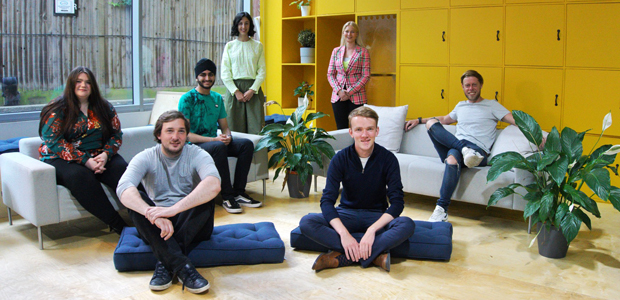
Wrapping up phase one and highlighting phase two successors
With this year taking a slightly different format to previous programmes, the CRL 2021 cohort sponsored by Mouser Electronics was spilt into two phases. Phase one saw 20 startups take part for six weeks, work in depth with the team to learn where they are at, what they need help with, and where they want to take things. From here the startups got the chance to pitch to the CRL community, partners and investors, to compete for the final six positions which will find themselves in phase two developing their products and businesses further.
So how did phase one go? With a hackathon, help from Brunel University students, a pitch day and an intense six weeks, we spoke to the startups about their experiences from phase one and the almighty lead up to the pitch day. We also found out who has made it to phase two, where they are currently at with the business, and what the goal is by the end of the cohort!
Muddy Machines
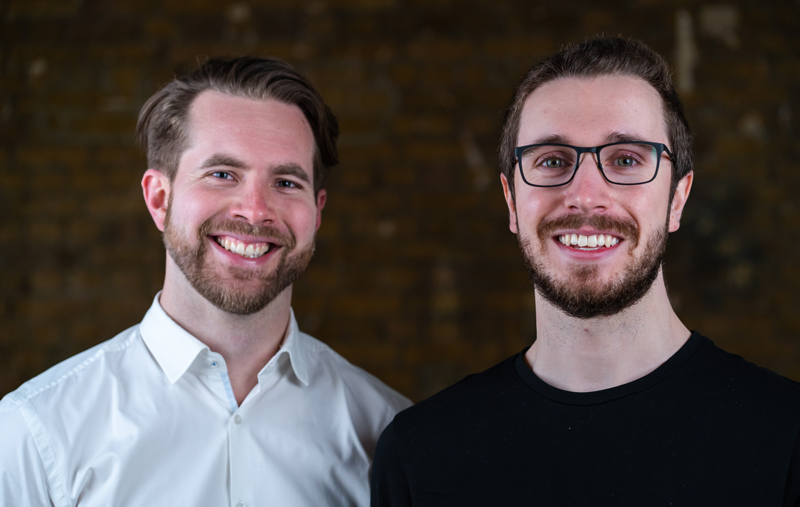
Having being accepted onto the programme, but being quite advanced compared to some other businesses, Muddy Machines are continuing in phase two – in some elements. Florian Richter Co-Founder at the business said: “There are elements of the programme we have already done in the Entrepreneur First programme, so we have agreed with CRL on a tailor made programme. The team at CRL has been so flexible and said we can work with them on strategic guidance, engineering held and PR exposure. All CRL want to do is help and they have been amazing.”
The business is at quite an exciting stage, as the tech team have just completed the post-mortem on the field trials, and are now going over how these went. Looking at how long can the machines operate for, how much supervision is needed, what are the battery options, how much power is needed and just going over the design challenges in general too.
Muddy Machines are currently fundraising, and looking for Seed investment, Florian explained this is sort they can spend on more parts and expand the team. “We want to be in fields and have the machine working next year. For us with investors it’s about highlighting the challenge and collecting the data.”
Phase one of the programme certainly helped with this, as Florian said CRL helped them with the bigger picture of the investment pitch, which gives them more confidence in front of the investors.
Radiant Matter
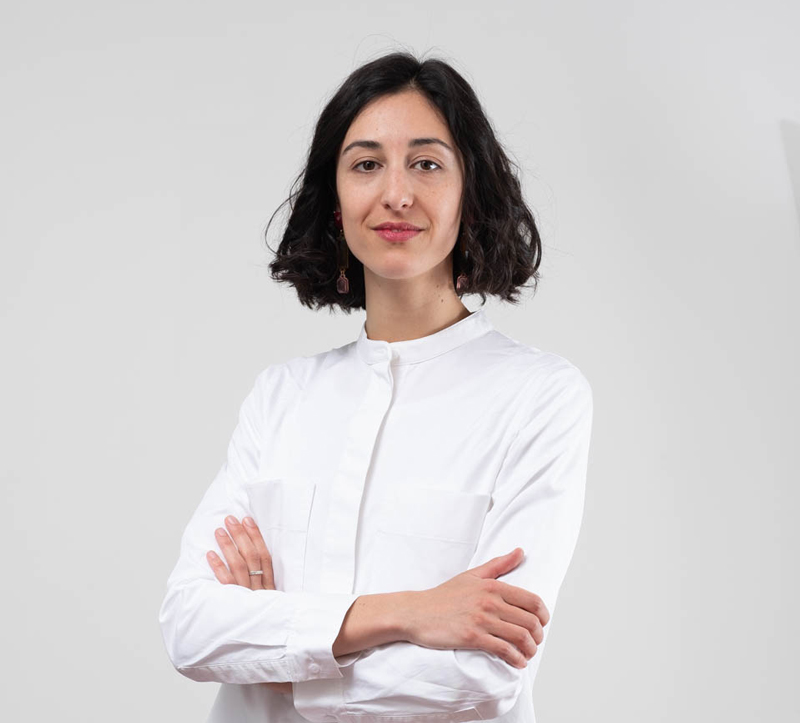
Our second official startup who has been invited back for phase two is Radiant Matter and solo founder Elissa Brunato. Speaking about her news Elissa said: “It is really great to be accepted on to phase two, the things we have learnt so far has been incredible, and CRL have adapted to help in anyway.”
Right now the company are focusing on new streams, one of which is in marketing as Elissa said now she has had some time to focus and get some help from the team, she wants to launch a website, create a logo and have a market strategy in place. “I will need to get the copy checked over because I work in sustainability, there's a lot of greenwashing in the industry. I just want to make sure that the way I’m talking about the company has no connection to greenwashing, and that it has all been fully researched properly.”
In terms of the product Elissa explained they are looking at a method of creating sequins to automate the process. She said: “This will be the next stage, but it’s looking at things like giving the sequins a hole so you can stitch them, its these tiny changes to the process that enables a lot of ease when doing this sort of work in volume. Working on this has been really great and the product development team is amazing.”
There is a lot more work to do, and Elissa said a lot more challenges to come, but when starting your own business that is always the way. “That is the exciting part of having your own business, there is always new challenges and pathways to face.” But for Elissa and bringing a new material to market that hasn’t been there before, it will be a longer pathway, as she can’t use things that have been there before. She added “There are a lot of regulations to get through, with creating a new material and new product.”
Yawboard
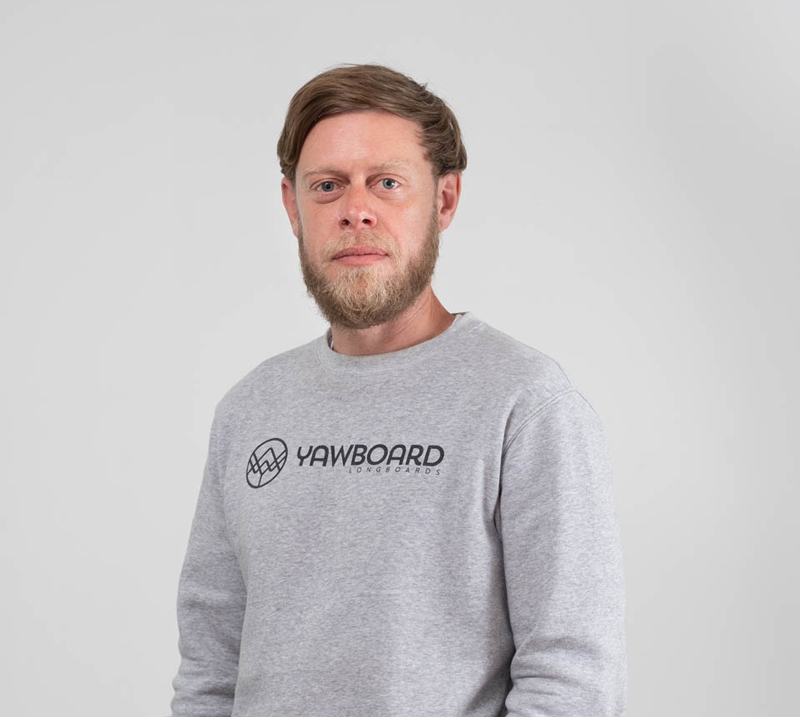
Ray Reynolds created a revolutionary new product, the hybrid between a scooter and skateboard – Yawboard, and after being accepted as one of the six startups on to phase two, he said: “I was really nervous about getting through, as I really wanted to be in the programme and after pitch day thought I had a chance, but there were so many other good companies that you just didn’t know.”
And just very recently Ray has quit his previous job and is now working fulltime on Yawboard. He said: “I know now with all the time and effort I have to put in, it will do so much for me and the business.”
On the course Ray and the team are developing a second generation product, as they already have a product which is selling, making Yawboard the only post-revenue business on the cohort. But Ray wants to create a generation of products, and so will potentially be crowdfunding again. Ray said: “For business plans and for the future, we'll need to do another round of investment towards the end of the year, in order to hire staff to grow the business.”
Currently Ray is working on partnerships to try and scale in other countries, but he said since pitch day being at CRL you have got product designers and engineers, and so it has all been about product development, looking at what the priorities are and what needs to change, plus working on an app too.
The most amazing thing for Ray being part of phase one and carrying on to phase two has been building a network around you and working with people closely, he said as a team and group they get so much knowledge and experience from each other.
New Motion Labs
Another startup to be accepted into the next phase was New Motion Labs, but after a hard decision made by the team, the board decided to not carry on with phase two on the programme.
Rob Wood, Sales and Marketing Executive said phase one was really good. “Getting feedback from other companies, learning from each other’s mistakes and having that sense of community together. It was very productive for us, and we got a lot done in market research.”
It seems that Rob and the team have been busy and non-stop since pitch day, which again Rob said was excellent and went really well. He said: “I did forget one paragraph, that was quite important, but I don’t think anyone noticed. But it was very useful for me, learning about pitching and the whole experience.”
During the CRL programme, New Motion Labs were very focused on track cycling, and planned for the product to be used and tested at the Tokyo Olympics, however being so new it actually was banned from being used. So now Rob explained the team are looking to expand the use for the product and have been looking into electric and cargo bikes.
“Cargo bikes, essentially big robust bikes need a new chain system as using the normal ones are not working for the product, there is too much stress on the chain. So we have been doing some market testing to see if there is a demand for our product here. We are still working on track cycling also, it is just for now on the back burner.”
Rob also added that the team may also be looking into road bikes, but this is very early stage and they will have to see if this becomes a natural progression for the product.
Co-opts
Since the CRL cohort, Co-opts has been busy with a number of things, including hiring interns and talking with a general medical firm to get on their environmental test bed, which with expand the use case quite dramatically Kevin Flanagan, Co-Founder explained. “It will make things much more efficient.”
Phase one for the team at Co-opts and Kevin was a very useful experience, and although they will not be progressing onto phase two, the company did take a lot from the time they did spend there. Kevin said: “Pitch practice was great, I really got a lot out of that. We also learnt a lot on the hardware side, and were now changing a few things in the business.”
Unlike some of the other businesses, Kevin said they didn’t get as much out of the student collaboration, but he said it was because Co-opts don’t exactly fit into any of the standard categories. “We're in an awkward ugly sort of market, sensitivity, it doesn't behave like standard markets behave and I think CRL probably struggled a bit trying to fit us into their template. We don’t fit neatly into the boxes, the fact that we're doing hardware and software. Our story is very complicated and I think people want simple stories.”
They are now working on prototyping and developing, and have the previous hollow vessel they were working with is being populated, with some products that Kevin said he didn’t know existed until working with CRL. “That has been a major step forward, so then it is looking at laying out the software with the device. It is just hard for us, as most therapists, hear what we want to do and just think ‘there’s no way.’ It is a complex role, as it's down to aspects of human nature, it's down to take the root system, and it’s down to a certain element of arrogance. And in ten years’ time I bet we will all be saying it’s such an obvious idea how was this not done sooner.”
Sew Conscious
As soon as Samantha Supan had finished phase one of the CRL cohort, she started a four week teaching placement straight away. Being a student on her placement year at Brunel University, Samantha was accepted on to the first phase of the programme with her idea Sew Conscious – to create a sustainable dewing machine made from recycled materials, to encourage more people to recycle and reuse rather than buy new.
Talking about her teaching placement Samantha said it has now made her decision on what to do after university even more difficult. Phase one was really good for her, as she found out all the fundamentals of business. “It was also really nice to be around so many people and businesses all at different levels.”
Right now Samantha is taking a step back from creating a sewing machine to help with fast fashion, but is still thinking about what else she can do to help this problem. She said: “There are other ways to help, for example an education platform or taking old sewing machines upcycling them and getting people to use these rather than create new.”
Sew Conscious is on pause for the moment, until Samantha goes back to university for her final year, where she said she may make it into her final year project. “When I was doing user research and marketing, I found my audience wasn’t exactly who I thought it maybe, it was 30-40 year olds so my target audience has completely changed.”
She is still however, excited and looking forward to stopping the problem, to try and help with fast fashion, but being on CRL has definitely taught her to proceed with caution. “I have learnt that not all businesses make it – and that’s okay.”
Kouo
Having been offered a place to carry on with CRL, Kouo also decided that the second part of the cohort was not for them. But Co-Founders Shaan Bassi and Keidi Kapllani both expressed how amazing the experience was for them, and that they thoroughly enjoyed it. Keidi said: “It really gave us time to think about our strategy, and it really pushed you to do certain things you may not have done.”
The whole experience of CRL was a way of thinking differently about the business for Shaan and Keidi, who said being with like-minded people who had been through similar challenges was very beneficial. Being part of the community, and having the advisors and mentors was extremely interesting and useful to them.
The pitch day was again really interesting and useful Shaan said, it was the first time they had properly received pitching tips and tricks. “Watching and listening to the others on the cohort was a good learning experience too, we could really learn from each other and it was most of ours first in-person pitch.”
Kouo at the moment are currently looking to hire new people and working on their own custom sensitive materials and polymers, which have been highly performing, and really exciting for the pair. Shaan said: “We've been doing work across refining the analytics that we present to users to really build on what we learned at CRL around lightweight implementations, so focusing on user testing and get product feedback.”
The pair are really focused on the digital products and getting ready to launch that with users, and are currently running some close alpha testing with the analytics, and hoping within the next year or so the product will be fully launched.
O Innovations
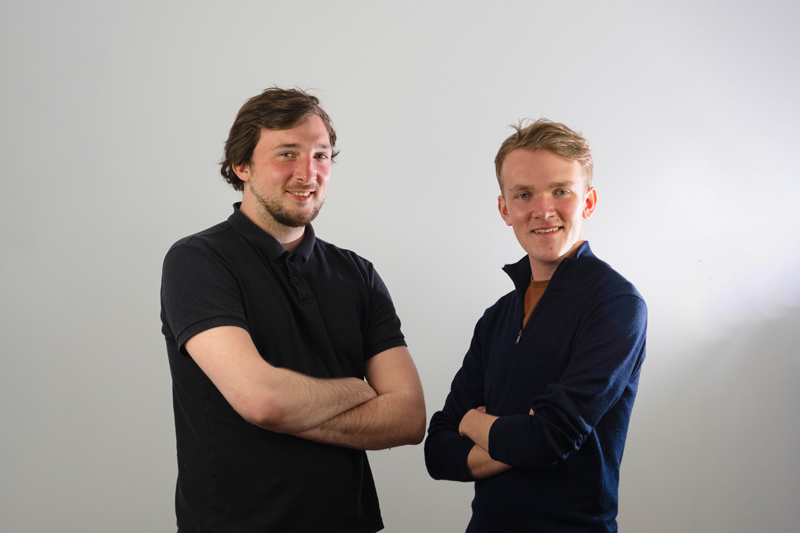
Safe to say, phase one was a huge success for O Innovation as the business was invited back for phase two, and Matt Taylor Customer Discovery and Development at the company said the whole team is really pleased. “Obviously we really wanted this opportunity, and sometimes it has felt that development of the product has been a bit slow with our Co-Founder Nicolas Orellana Olguin being based in Chile, but now being part of this programme really helps us to accelerate.”
Dominic Chippendale, Co-Founder at the company presented for the team on pitch day, and Matt said they day went really well, having the opportunity after to talk to people and really go into detail about the business, product and their visions. Matt said: “Sometimes it can be hard to convey what we are trying to achieve in such a short space of time, so being one-on-one with people is where it works well for us.”
As Nicolas is still away, and a CRL requirement is to have a technical member at the sessions, O Innovations has hired a recently graduated mechanical engineering student, who has been able to work with the product development team.
Now the team are looking at building a real life pilot, there has been a lot of simulations up to now, but they are ready for the next stage, Matt said: “We are working out what testing environments will be best, as we want different wind speeds – so it could be wind tunnels but these are hard to get hold of and very expensive. So we are now looking to attach it to a car.”
The team are also working to get the next round of investment under their belts, and this will hopefully be by Autumn. This will help with the next steps for research and development, and Matt said he and Dom are currently just trying to speak to as many people as possible to build connections, and hopefully future customers.
But for now testing is the main focus, and then they will be looking at design for manufacturing. From here Matt said it is then about creating a plan for how they make the product, as they want to licence the technology out to energy companies. “As the size has increased, this could be problematic, we will have to work out installation logistics and which is the best route to market.”
Project Stealth
One startup that was unable to be a part of this year’s pitch day was Project Stealth as unfortunately Co-Founder Paul Mendieta fractured his elbow – luckily he is fine now.
Project Stealth were also one of the businesses invited onto phase two, but it seems as though this time round it was not meant to be. Paul explained: “We have been working on this project since 2019, the plan was to raise in 2020, but obviously COVID made this more difficult, and we started to feel like we weren’t moving forward with the idea, and it had stood still a bit. So we had a reality check, and all three of us co-founders have been working other jobs, so decided to pause Project Stealth for now. But we will pick it up again later on, and little bits we will keep doing when we have time.”
The team have decided to design an in between product – in between a wearable and testing. Paul explained: “Like a portable testing solution with salvia, just not in the mouth. We are still at the first stages, and so are working on designing that.”
They are continuing to create and grow a network around the team and business, so they keep the project at a certain level and ensure it isn’t forgot about. “Phase one was very smooth for us, as we had been working on the project a bit before, it wasn’t completely new. But being on the cohort was very useful for us, and practical and hands on which really suited us.”
Paul added that they have also been working on some patents, in which CRL has helped a lot with. “Working a lot with lawyers on the first patent and then moving onto the bio metrics, we were able to secure the bio sensing side of the patent. For us the vision is clear, we want to reach the healthcare system and work in personalised health and bio sensing, which is a space which is rapidly growing.”
Armaros
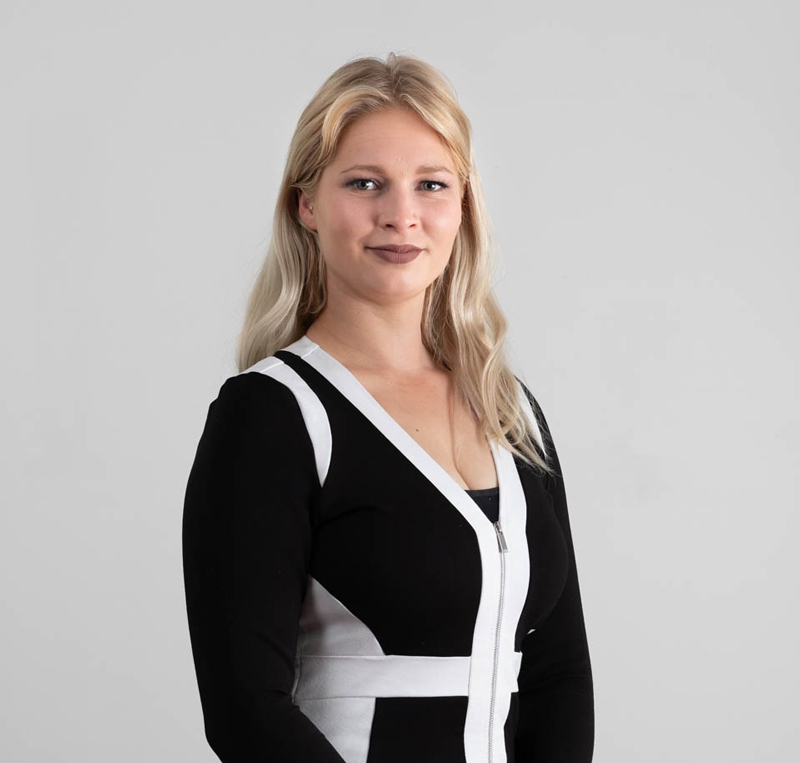
Esmeralda Tuomi and her startup Armaros are another one of the cohort moving onto the second phase, and the same time she was offered a spot on the programme Esmeralda was also offered money from an investor. She said: “It was a big relief, as for me it was a bit of a now or never situation.”
The pitch day was a success for Armaros and Esmeralda said she quite enjoyed pitching and presenting, in general it is one of her favourite parts of being an entrepreneur. Commenting on phase one, she said: “I really enjoyed the first phase, as it really solidified that CRL was going to give me what I wanted and needed. Moving into phase two, it shocked me at how much support was offered across all areas, and that people really cared.”
Since starting with CRL, Armaros and the team have really developed the material they are creating. Esmeralda said: “We have been testing it a lot, and it feels a lot more fluid and quicker in developing. The team have just helped me so much, and the general structure of the programme has really helped me.”
Things are progressing really well for Esmeralda and therefore she said it now feels really real. “The goal is to have a soft launch for the product before Christmas. We have three pre-manufacture samples ready, and we are planning to be on a trade stand before Christmas too.”
Armaros is a project that Esmeralda has been working on for a while now, so she does know a thing or two, but she said working with the product development team at CRL has been amazing, they have helped so much in thinking up ideas with her and just offering so much support.
Esmeralda is going to be starting the hiring process next week, as she wants to hire an engineer. She said: “Some of the work has been really focused, building new relationships with new advisors, and connecting with people, which can be a lot to do on your own, but CRL has really helped with this.”
Lava
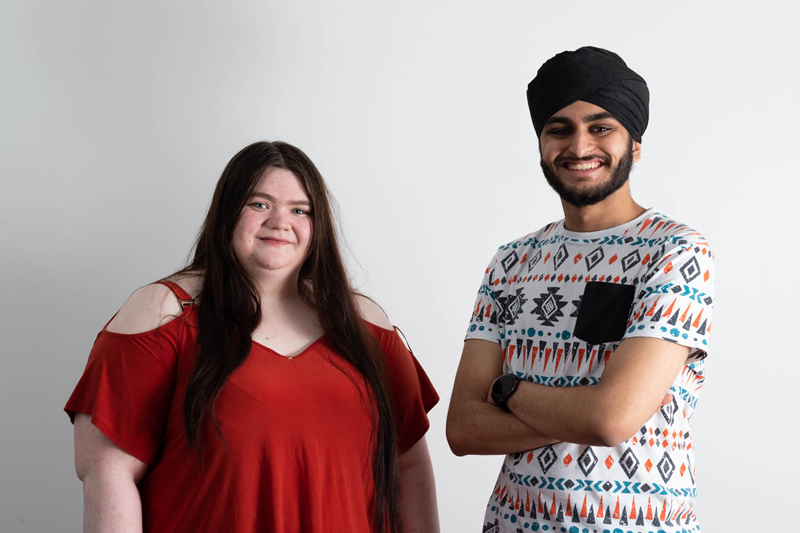
After meeting at university and then becoming Co-Founders Paramveer Bhachu and Joanna Power were super excited to get through into the next phase of the cohort, as Joanna said: “We are really excited, and so ecstatic to be on it. We came on as grads, so weren’t as far advanced as others, but we have put so much into it and we are so pleased it has come through.”
For the pair who both presented, the pitch day went well was they described as surprisingly daunting. Joanna said: “The day itself was good, we had so many quick but intense conversations with so many interesting people and aspects, we really did take so much away from it.”
Phase one for the Lava team involved a lot of market validation and customer discovery, which were extremely useful. Paramveer said: “We learnt a lot about our market, and having the other 20 companies around us was a great environment to be in and around. It was good to bounce ideas off each other and learn so much.”
Joanna added that also having the students there to help was very useful, and it was nice to have some dedicated time to work on the project. She added: “We are currently working on a mixture of getting funding and working on prototyping. For us it’s about now understanding what competitors do and don’t do well with cleaning and water consumption. Then building a prototype around this.”
They are looking at research and development with CRL and what they want the product to achieve, as some parts are involving a lot more thought and planning than the pair first anticipated. Paramveer added: “We are looking forward most to seeing where it goes, as we have never done this before, and it is the furthest we have ever taken an idea or project.”
Mumbli
The pitch day for Mumbli and Founder Marion Marincat was a great day, talking to the mentors Marion said he learnt a lot. Talking about the programme as a whole, Marion said he struggled a bit at times as the programme was not designed for people with hearing loss. “I couldn’t hear a lot of the sessions etc, so someone else from the team starting attending. I think this was important as it means people will start to think more about invisible disabilities.”
For Marion the pitch day was so much more accommodating, as Mumbli had a table set up where people could come and speak and could hear better. He said: “It is just about highlighting these problems and situations so they can be changed in the future, which is exactly what happened here.”
Currently Mumbli are working on one big project and launching the Hearing Wellness District, in the Olympic Park in London. The idea is to start promoting the whole concept of audio accessibility and the whole concept of certified for sound, but mainly to start giving people Mumbli’s smart devices and provide this live atmosphere matching.
Marion said: “We're working with two PR agencies, one on stakeholder engagement with government policymakers and local authorities and the other agency is more focused on the users and attracting new users to the whole district. It is very exciting, we have had a number of big plans over the past year or so, that were all shattered in one way or another, so we are looking forward to this.”
After the pitch day with CRL Mumbli secured a small amount of investment from a French VC, which Marion said will help them to expand in France and Europe. The plan next is to start a crowdfunding campaign towards the end of the year.
Berry Studio
The second startup who was unable to attend the pitch day was Berry Studio. But Co-founder Sebastian Negus said he and the team really enjoyed phase one overall, and gained a lot more insight.
He said: “It really helped us in mapping out the business, and taught us how to speak when presenting in our pitches. The whole experience was very insightful.”
The solution is currently out on the market, and the team are now currently working on more projects to bring onto the platform and take things further. As a team they have been working on ideas together, and did this with CRL too, looking at marketing the platform for its users.
With the product the whole journey actually went really smooth. Sebastian said: “There were a few hiccups at the beginning, but our programmer fixed these very quickly.” In the future with the Berry Studio product there may be some limitations so they team are looking to move it over to somewhere else.
Sebastian and the team are really looking for market validation, and are currently working with universities to do more events, so they can see how well it will do in this sector. From here it is then about working out what other sectors it may be relevant for.
So to summarise…
Your startups to look out for in phase two include:
- Lava
- Armaros
- O Innovations
- Yawboard
- Radiant Matter
- Muddy Machines


